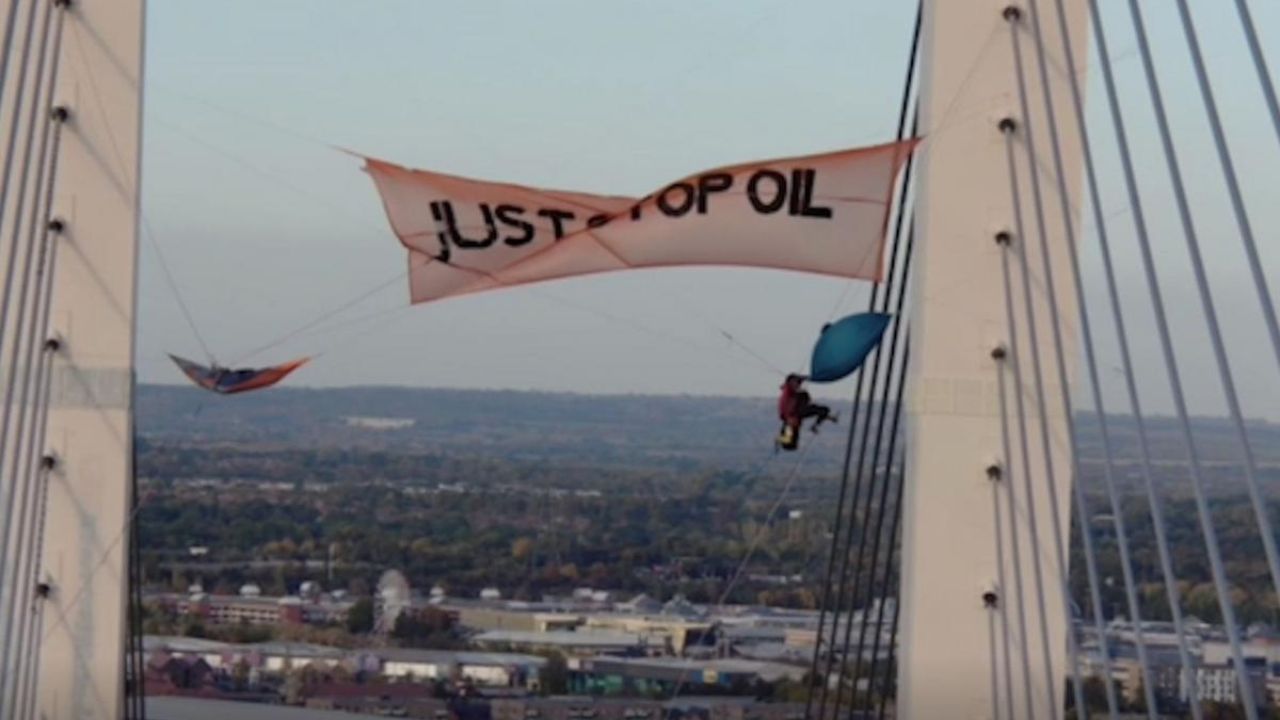In a move that has stirred controversy and drawn criticism from the United Nations, the UK Prime Minister has voiced staunch support for stringent sentences imposed on climate activists. The statement comes in the wake of a highly publicized case involving two campaigners from the Just Stop Oil movement, who were incarcerated earlier this year after scaling the suspension cables of the Queen Elizabeth II Bridge in Kent.
The activists in question, Marcus Decker, 34, and Morgan Trowland, 40, found themselves behind bars after causing a 40-hour gridlock when police were forced to close the crucial crossing to traffic. The duo, convicted of causing a public nuisance, faced tough legal repercussions, with Decker sentenced to two years and seven months, and Trowland handed a three-year term.
Despite an appeal hearing in July, where judges acknowledged the “long and honourable tradition of civil disobedience on conscientious grounds,” the severity of the sentences was upheld. The Lady Chief Justice, Lady Carr, defended the jail terms, stating that they were “not excessive” and served the “legitimate” aim of deterring others from engaging in similar acts.
The UN, however, has taken issue with the UK government’s approach to these climate activists. In a letter expressing concern, David Fry, the UN Special Rapporteur on the Rights to Freedom of Peaceful Assembly and of Association, criticized the sentences as “significantly more severe than previous sentences imposed for this type of offending in the past.” Fry emphasized his apprehension about the potential impact on civil society and activism, particularly regarding the global environmental crisis.
Fry’s letter underscores broader concerns about the consequences of such punitive measures on the freedom to protest and express dissent. As the climate crisis takes center stage globally, activists argue that addressing environmental issues necessitates a space for civil society to voice concerns and push for change. The refusal of the campaigners’ appeal in the Supreme Court, the highest court in the UK, further raises questions about the judicial balance between deterring disruptive acts and respecting the fundamental right to peaceful protest.
The clash between environmental activism and legal consequences brings to the forefront a critical debate about the boundaries of civil disobedience and the role of the legal system in addressing urgent global challenges. As the repercussions of this case reverberate, it prompts reflection on the delicate balance between maintaining public order and safeguarding the democratic right to protest, particularly in the face of a looming climate crisis.








